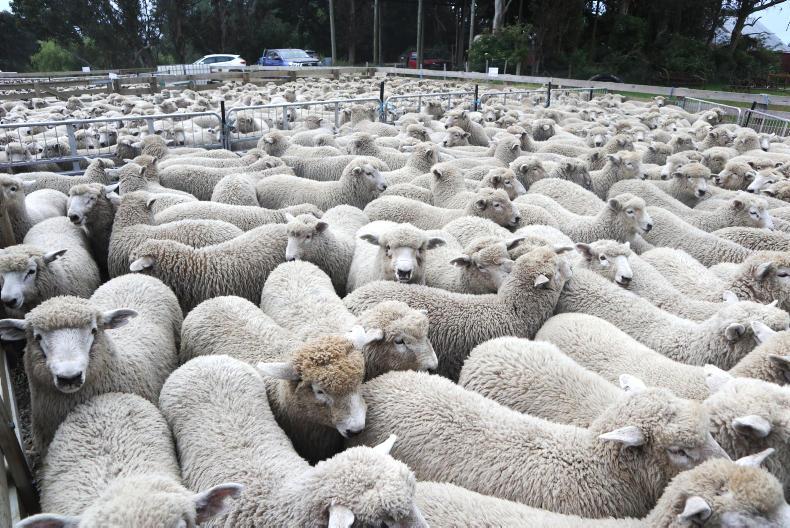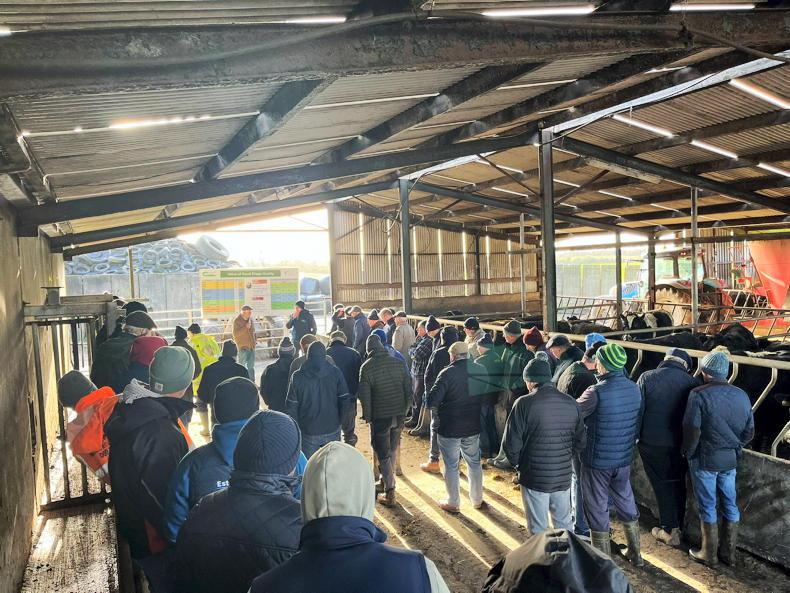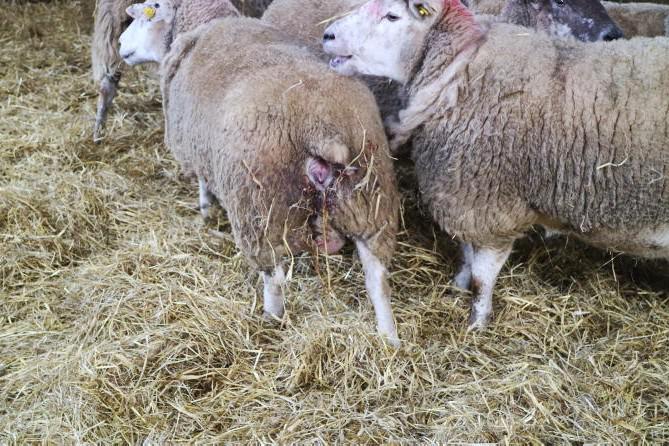A sheep farmer in Cornwall is breeding lambs that are tolerant to worms and do not require dosing with anthelmintics.
The farmer, Matt Smith explained that worm tolerance means lambs still show a parasite burden in faecal egg counts, but it does not cause scour or reduced liveweight gains.
“We have used individual dung samples to find quite a significant proportion of our flock that have worm eggs but are still growing at a desired rate without any treatments,” Smith told the Irish Farmers Journal.
Tolerance is different to resistance as the latter already occurs in most sheep naturally. In general, lambs with worm burdens have reduced growth rates and require dosing, but eventually become immune to worms.
He runs 1,200 Romney ewes and 700 red deer with his wife Pip on an upland farm in Bodmin Moor
“We are going back 100 years to when sheep were not treated with anthelmintics,” Smith said.
“We are identifying stronger animals for breeding in a controlled environment so that welfare is kept to the highest level possible.”
Smith is originally from New Zealand, but has been living in the UK for seven years. He runs 1,200 Romney ewes and 700 red deer with his wife Pip on an upland farm in Bodmin Moor.
He maintains that sheep farmers can reduce veterinary bills and become less exposed to problems with anthelmintic resistance by breeding stock that are less reliant on wormers. He has been selling worm-tolerant Romney rams in Britain for several years and he exported to NI for the first time last year.
Genetics
“It’s quite a quick process because it’s a reasonably heritable trait, but we were able to short track the system by over 20 years by importing New Zealand genetics. Anthelmintics in New Zealand have always been much more expensive than in the UK, so those costs are looked at a lot more,” Matt said.
On the Smith farm, there is a control group of lambs which are dosed for worms every six weeks.
These lambs provide data on where growth rates should be under a typical system that uses anthelmintics.
They then have to pass a whole heap of tests. They are never allowed to go lame
Lambs that do not receive wormers are benchmarked against the control group and ram lambs are initially selected based on growth rates.
“They then have to pass a whole heap of tests. They are never allowed to go lame, they have to be born and reared as a twin and they are never allowed to get maggots,” Smith said.
“We whittle 360 rams down to around 120 and then we put them through their paces over the winter in the last test. If they cannot hold their condition on minimal amounts of input, they do not pass. We usually end up with about 60 to 80 rams that we are happy to sell.”
Read more
Sheep farmers urged to faecal egg count
Paddock system paying off in Cranna
A sheep farmer in Cornwall is breeding lambs that are tolerant to worms and do not require dosing with anthelmintics.
The farmer, Matt Smith explained that worm tolerance means lambs still show a parasite burden in faecal egg counts, but it does not cause scour or reduced liveweight gains.
“We have used individual dung samples to find quite a significant proportion of our flock that have worm eggs but are still growing at a desired rate without any treatments,” Smith told the Irish Farmers Journal.
Tolerance is different to resistance as the latter already occurs in most sheep naturally. In general, lambs with worm burdens have reduced growth rates and require dosing, but eventually become immune to worms.
He runs 1,200 Romney ewes and 700 red deer with his wife Pip on an upland farm in Bodmin Moor
“We are going back 100 years to when sheep were not treated with anthelmintics,” Smith said.
“We are identifying stronger animals for breeding in a controlled environment so that welfare is kept to the highest level possible.”
Smith is originally from New Zealand, but has been living in the UK for seven years. He runs 1,200 Romney ewes and 700 red deer with his wife Pip on an upland farm in Bodmin Moor.
He maintains that sheep farmers can reduce veterinary bills and become less exposed to problems with anthelmintic resistance by breeding stock that are less reliant on wormers. He has been selling worm-tolerant Romney rams in Britain for several years and he exported to NI for the first time last year.
Genetics
“It’s quite a quick process because it’s a reasonably heritable trait, but we were able to short track the system by over 20 years by importing New Zealand genetics. Anthelmintics in New Zealand have always been much more expensive than in the UK, so those costs are looked at a lot more,” Matt said.
On the Smith farm, there is a control group of lambs which are dosed for worms every six weeks.
These lambs provide data on where growth rates should be under a typical system that uses anthelmintics.
They then have to pass a whole heap of tests. They are never allowed to go lame
Lambs that do not receive wormers are benchmarked against the control group and ram lambs are initially selected based on growth rates.
“They then have to pass a whole heap of tests. They are never allowed to go lame, they have to be born and reared as a twin and they are never allowed to get maggots,” Smith said.
“We whittle 360 rams down to around 120 and then we put them through their paces over the winter in the last test. If they cannot hold their condition on minimal amounts of input, they do not pass. We usually end up with about 60 to 80 rams that we are happy to sell.”
Read more
Sheep farmers urged to faecal egg count
Paddock system paying off in Cranna









SHARING OPTIONS